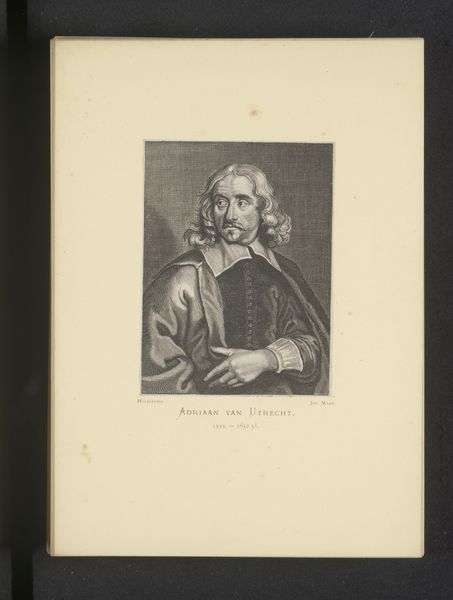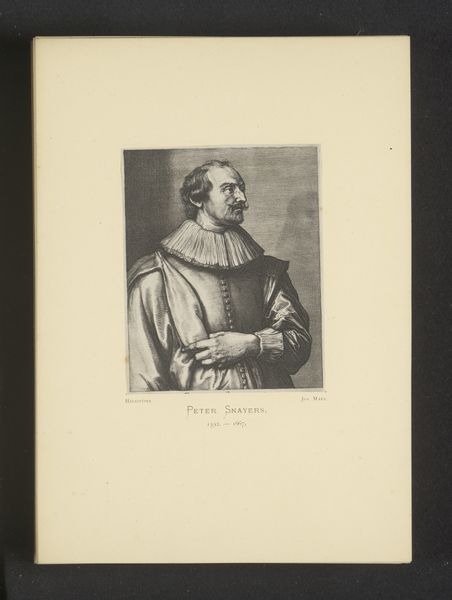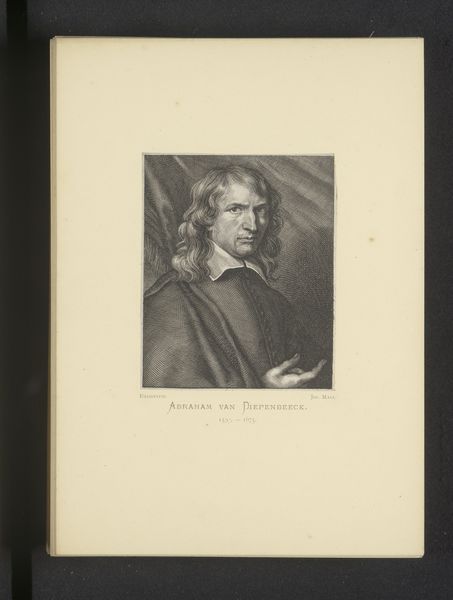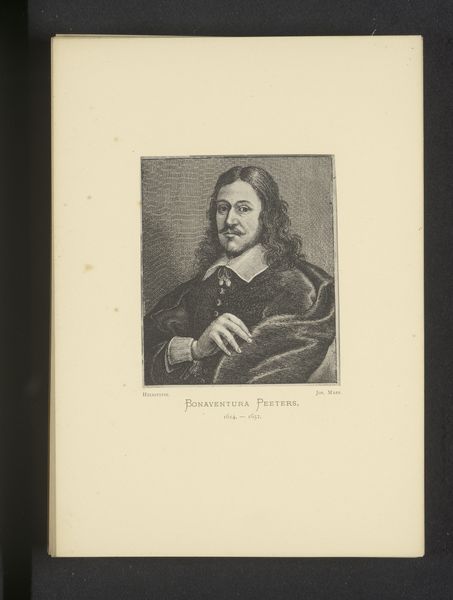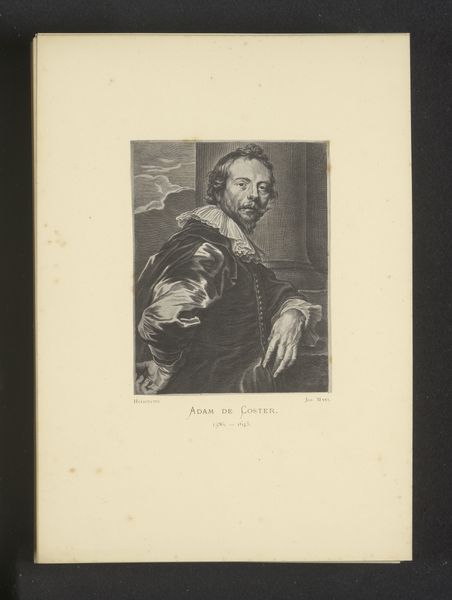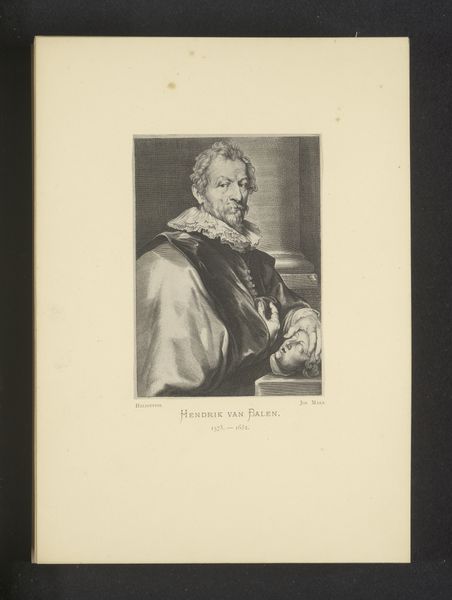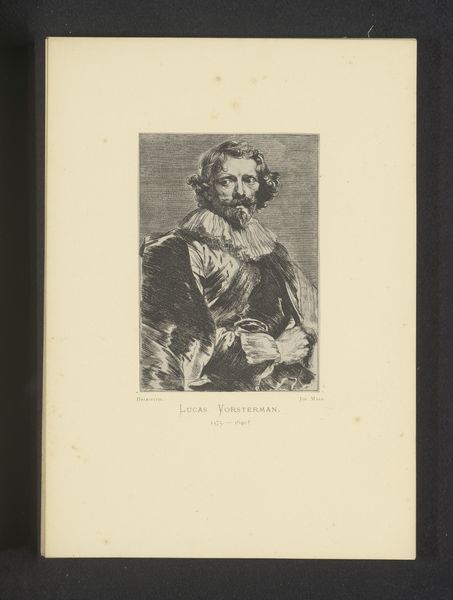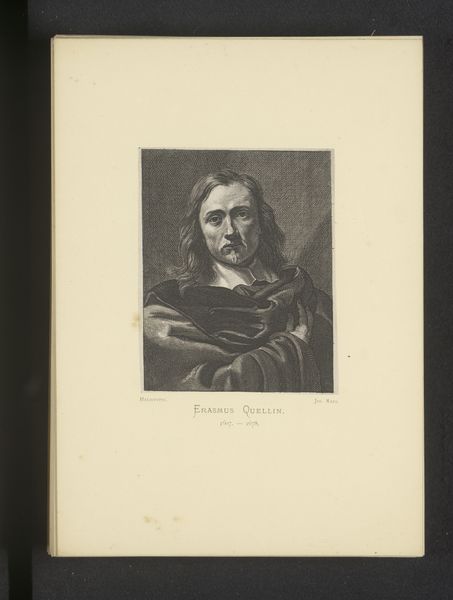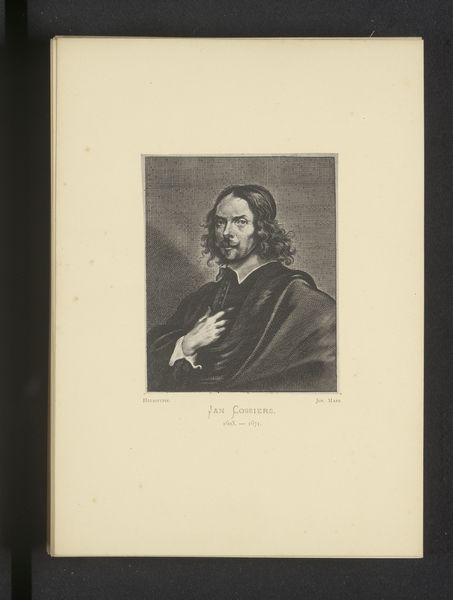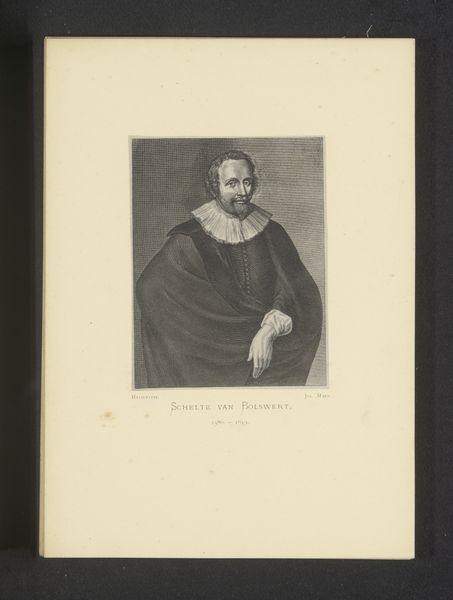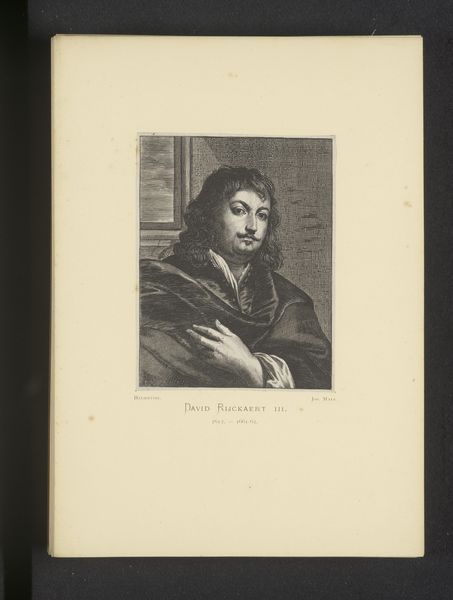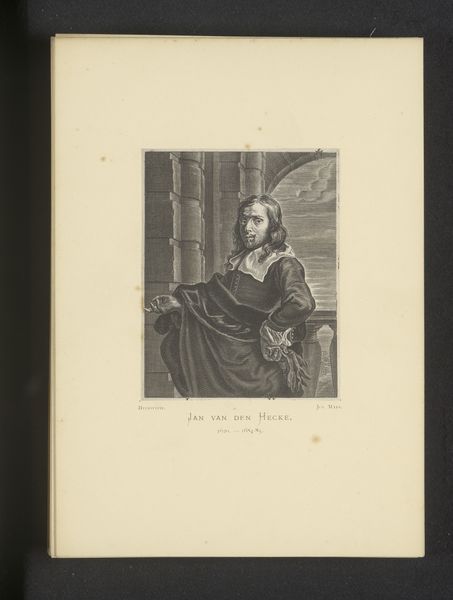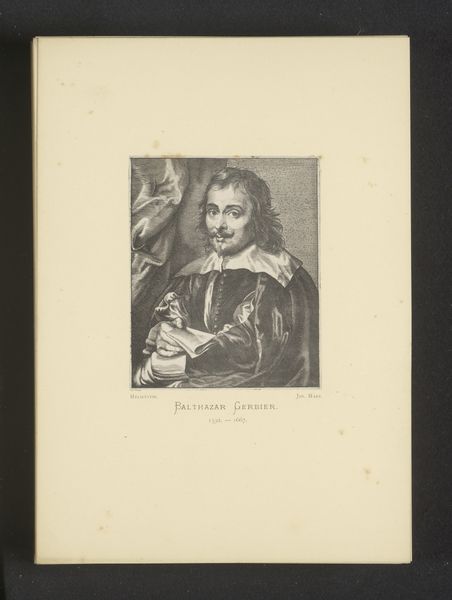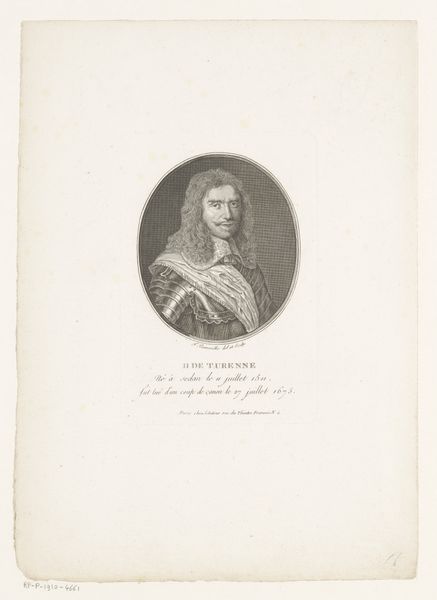
Reproductie van een gravure van een portret van Thomas Willeboirts Bosschaert door Coenraet Waumans before 1877
0:00
0:00
Dimensions: height 113 mm, width 91 mm
Copyright: Rijks Museum: Open Domain
This is a reproduction of a portrait of Thomas Willeboirts Bosschaert by Joseph Maes, dating from the nineteenth century. It is a very small print, made using the technique of engraving. Engraving involves using a tool called a burin to carve lines directly into a metal plate, which is then inked and printed. This is an exacting process demanding considerable skill. Engraving was often used for reproductive prints like this one. The choice of engraving has a social significance here. By the 1800s, it was already being superseded by cheaper methods of illustration. So, we can see Maes’s use of this older technique as a conscious choice, a deliberate embrace of the values associated with handcraft and the fine arts. By considering the material and the making, we can see that this modest print is not just a reproduction, but a statement about artistic values. It challenges our assumptions about what counts as art, and how it relates to labor, skill, and social status.
Comments
No comments
Be the first to comment and join the conversation on the ultimate creative platform.
